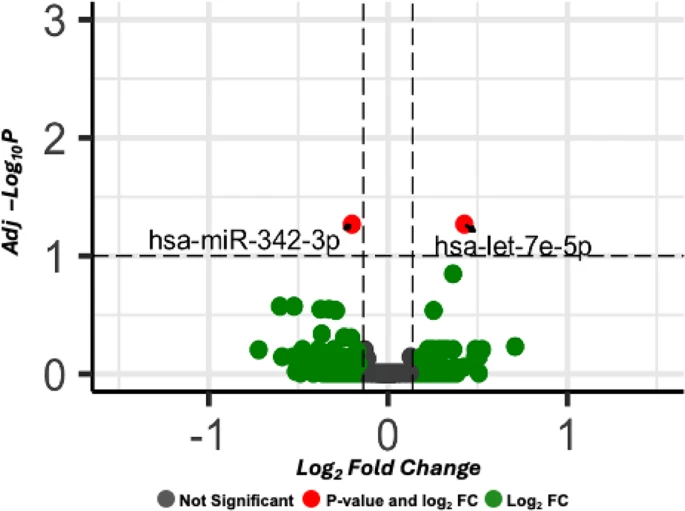
Tiwari, A., Hobbs, B.D., Sharma, R. et al. Respir Res 26, 38 (2025). https://doi.org/10.1186/s12931-025-03116-w
Abstract
Background
MicroRNAs (miRNAs) are crucial post-transcriptional regulators involved in inflammatory diseases, such as asthma. Poor lung function and airflow issues in childhood are linked to the development of chronic obstructive pulmonary disease (COPD) in adulthood.
Methods
We analyzed small RNA-Seq data from 365 peripheral whole blood samples from the Genetics of Asthma in Costa Rica Study (GACRS) for association with airflow levels measured by FEV1/FVC. Differentially expressed (DE) miRNAs were identified using DESeq2 in R, adjusting for covariates and applying a 10% false discovery rate (FDR). The analysis included 361 samples and 649 miRNAs. The two DE miRNAs were further tested for association with airflow obstruction in a study of adult former smokers with and without COPD.
Results

We found 1 upregulated and 1 downregulated miRNA in participants with airflow below the threshold compared to those above it. In the adult study, the same miRNAs were upregulated and downregulated in individuals with FEV1/FVC < 0.7 versus those with FEV1/FVC > 0.7, showing suggestive statistical evidence. The target genes of these miRNAs were enriched for PI3K-Akt, Hippo, WNT, MAPK, and focal adhesion pathways.
Conclusions
Two differentially expressed miRNAs were associated with airflow levels in children with asthma and airflow obstruction in adults with COPD. This suggests that shared genetic regulatory systems may influence childhood airflow and contribute to adulthood airflow obstruction.
